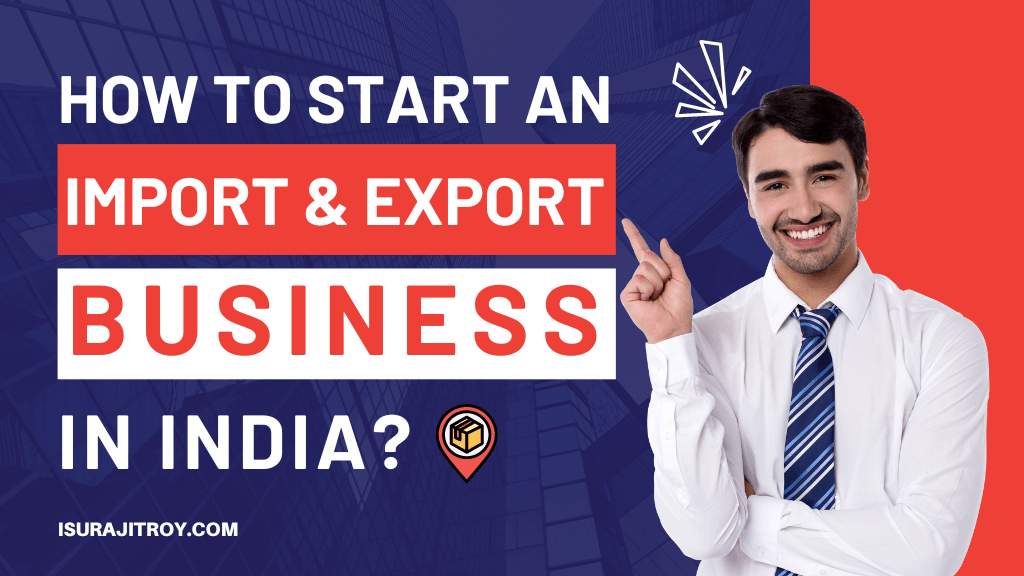
In a world where globalization is at its peak, international trade has become more crucial than ever. Whether it is raw materials, finished products, or even services, the import and export business offers a plethora of opportunities for entrepreneurs. India, with its vast and diverse market, serves as a significant player in the global trading ecosystem. If you are contemplating starting an import and export business in India, this guide will provide you with all the necessary steps and insights needed to establish a successful venture.
Analyze The Market’s Viability
Before diving headfirst into the import and export business, it is crucial to conduct a thorough market analysis. Understanding the demand for your product, its profitability, potential trade barriers, and the political environment of your target market are all essential factors to consider.
Demand for the Product
Research the demand for your product in the target market. It is vital to ascertain whether there is a genuine need for your product and if the demand is sustainable over time.
Profitability
Analyze the cost of producing or procuring the product, shipping costs, and the price at which it can be sold in the target market. Ensure that the venture is financially viable and offers a good return on investment.
Trade Barriers
Understand the trade barriers that might affect your business. These could be tariffs, quotas, or non-tariff barriers like stringent quality standards or complicated customs procedures.
Political Environment
The political environment of the target country can significantly affect your business operations. It is essential to be aware of the political stability, bilateral relations with India, and any existing trade agreements that might affect your business.
Get a Business PAN Card
The Permanent Account Number (PAN) is a ten-digit alphanumeric number issued by the Income Tax Department of India. It is essential for keeping track of an organization’s financial transactions and taxes. Obtaining a PAN card for your import-export business is one of the first steps in the process. The application can be made online, and the required documents include proof of identity, address, and date of birth of the applicant.
Register Your Business
Selecting a suitable business structure is crucial for the success of your import and export venture. The available options in India include Sole Proprietorship, Limited Liability Partnership (LLP), Partnership Firm, Public Limited Company, and Private Limited Company. Each of these structures has its own advantages and disadvantages, and it is advisable to consult a legal or financial expert to determine the most suitable option for your business.
Get a Business Bank Account
Opening a current account in the name of your business is essential for managing the financial transactions of your import and export venture. The required documentation for opening a business bank account varies based on the chosen business structure. Typically, it includes the business registration certificate, PAN card, address proof, and identity proof of the business owner or directors.
Obtain an Import-Export Code (IEC)
The Import-Export Code (IEC) is a mandatory requirement for conducting import and export activities in India. It is a ten-digit code issued by the Directorate General of Foreign Trade (DGFT). The application for IEC can be made online, and the required documents include a PAN card, address proof, and bank certificate.
Select the Product You Want to Export
Choosing the right product is crucial for the success of your export venture. It is advisable to select a product that has a high demand in the target market, offers good profitability, and aligns with your skills and expertise. Additionally, it is essential to be aware of any regulations or standards that apply to your chosen product in the target market.
Identify Buyers For Your Products
Finding potential buyers for your products is a crucial step in the import and export business. Various online platforms, trade fairs, and exhibitions can help you connect with potential buyers. Additionally, hiring a professional export promotion agency or a trade representative can also be beneficial.
Establish Your Financial Projections
Creating a detailed financial plan is essential for the success of your import and export business. It should include all the anticipated costs, such as procurement, shipping, marketing, and overheads. Additionally, it should also include the expected revenue and a break-even analysis. It is advisable to consult a financial expert to create a robust financial plan.
Hire an eCommerce Shipping Company
Logistics is a critical component of the import and export business. It is essential to choose a reliable shipping company that can ensure the safe and timely delivery of your products. Various factors to consider while selecting a shipping company include their experience, reputation, coverage area, and shipping rates.
Contact a Customs Clearing Officer
Navigating the customs procedures can be complicated, and it is advisable to hire a professional customs clearing officer to assist you. They can help you understand the various customs duties, taxes, and documentation required for importing and exporting goods.
FAQs
Which business is best for import in India?
India’s top imports include mineral fuels and oils, gems and precious metals, electrical machinery and equipment, machinery and computers, organic chemicals, plastics and plastic articles, animal and vegetable fats and oils, iron and steel, optical, technical, and medical apparatus, and inorganic chemicals.
How much does it cost to start an import-export business in India?
The initial cost of starting an import-export business in India includes the cost of obtaining an IE Code, registering your business, opening a bank account, and procuring the initial inventory. Additionally, there will be ongoing costs for shipping, marketing, and overheads. The total cost can vary widely based on the chosen product, target market, and scale of operations.
Which export business is most profitable in India?
Some of the most profitable export businesses in India include clothing and textiles, mineral fuels and oils, raw ingredients, pharmaceuticals, jewelry, and leather products.
Conclusion
Starting an import and export business in India can be a rewarding venture, provided you approach it with meticulous planning and a thorough understanding of the market dynamics. Conducting a comprehensive market analysis, choosing the right product, identifying potential buyers, creating a robust financial plan, and selecting reliable shipping and customs clearing partners are all crucial steps in the process. Following this guide and staying informed about the latest trends and regulations in international trade can help you establish a successful import and export business in India.




